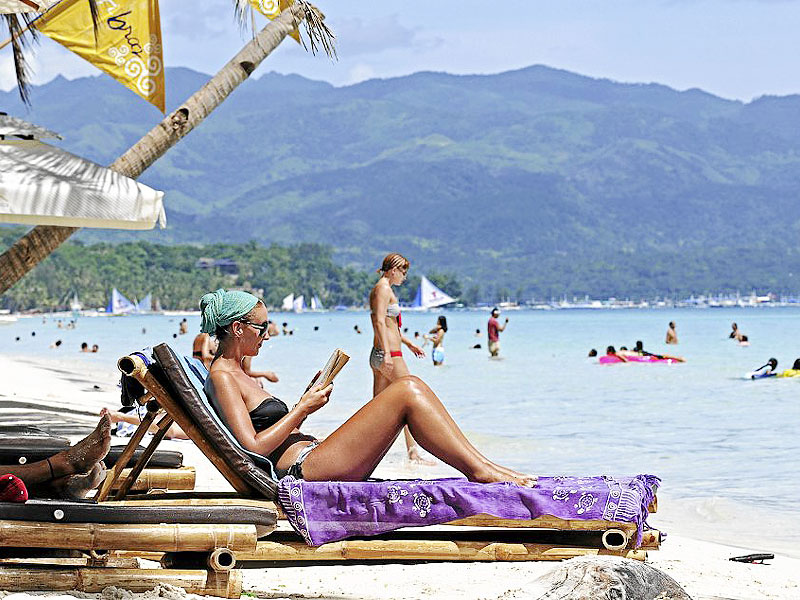
Boracay is a favorite destination in the Philippines for foreign tourists. INQUIRER FILE PHOTO
The government’s tax think tank is opposing proposals to impose taxes on foreign tourists visiting the country amid of still low tourist arrivals compared with most of its Asean neighbors.
“Albeit the potential of the proposed foreign tourist tax to raise much needed revenue for the government to be used for tourism-related projects and programs, its imposition, as of the moment, may need further study given the negative effect it may pose to the tourism industry and the administrative difficulty in identifying those who travel purely for leisure and/or vacation purposes who are the real target of the proposed tax and those who visit the country for medical treatment, official trip/mission or potential business venture,” the National Tax Research Center (NTRC) said in a report.
“It may be worthy to weigh the potential revenue to be raised from the said tax proposal vis-à-vis its impact on tourist arrivals and their ability to bring about economic benefits to the country in terms of income, employment, and revenue associated therefrom,” the NTRC added.
According to the NTRC, one way the government may slap additional levy on foreign tourists is through an “accommodation tax” of P1,000-1,500 per person similar to that imposed in European countries.
“The proposal would give the government an average annual revenue ranging from P9.4-14.2 billion. The percentage share of said option to total per capita tourist expenditure is very minimal at 2 percent and 3 percent for P1,000 and P1,500, respectively, hence, it is deemed affordable to the tourists,” the NTRC said, citing Department of Tourism estimates.
Another option is by including the foreign tourist tax in airline tickets.
“A foreign tourist tax of P1,620 may be charged to airline tickets, which is equivalent to the travel tax paid by Filipinos when traveling abroad. For the succeeding five years, around P15.3 billion annually is expected to be raised by the government from this source. The percentage share of said option to total per capita tourist expenditure is only around 3 percent,” the NTRC said.
However, the NTRC admitted that any new taxes will have adverse impact on the tourism sector.
“It is a known fact that a tax imposed on any sector can somehow stifle growth especially if said tax is excessive. The proposal may also be difficult to administer considering that the purpose of tourists traveling to the country may vary. There are those that visit the country for medical treatment, official trip/mission, pilgrimage, potential business venture, among others. Said travelers are not the target of the proposed tax but those who are traveling to the country for leisure and/or vacation purposes,” the NTRC explained.
“Moreover, the proposed tax may dampen the country’s tourism industry and consequently derail all efforts of the government in promoting the country as a premier tourist destination. The possibility of government not attaining its projected tourist arrivals until 2022 is likewise not farfetched,” it added.
Also, “considering also that the country lags behind other Asean member countries in terms of attracting tourists, a tax imposed thereon would further make the country uncompetitive,” it pointed out.
From 2011 to 2016, the Philippines attracted only 29 million tourists, ranking 6th among the 10 Asean countries after Malaysia’s 155.4 million, Thailand’s 155.3 million, Singapore’s 86.5 million, Indonesia’s 56.4 million, and Vietnam’s 46.3 million, the NTRC noted. /jpv

